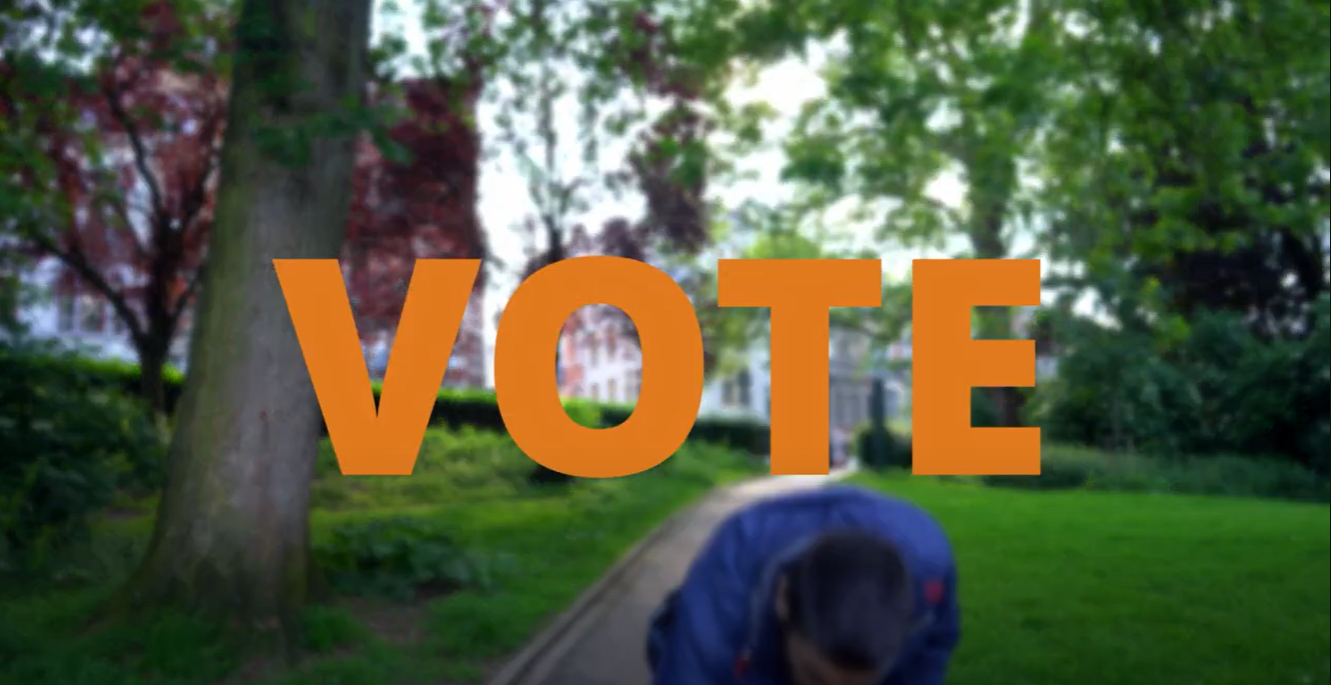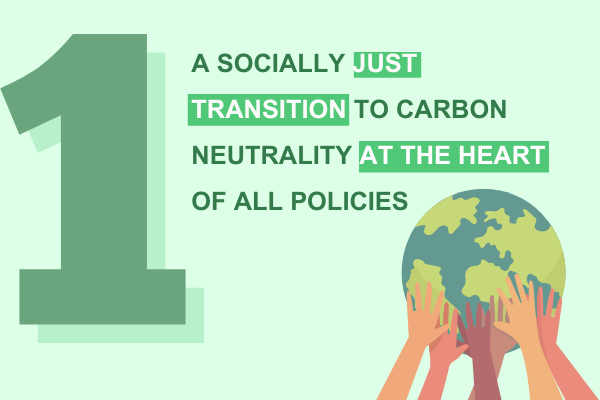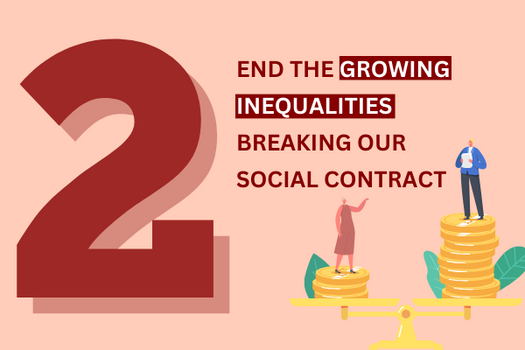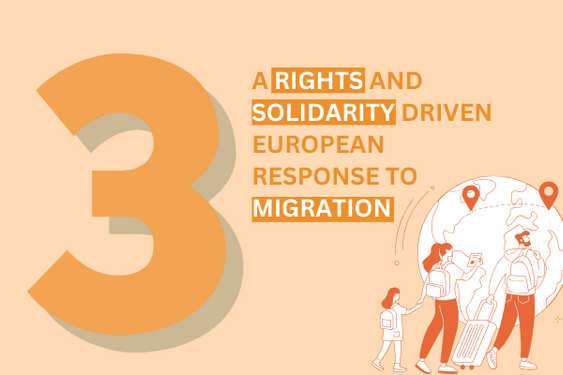End the growing inequalities breaking our social contract
We want a Europe that is defined by a wellbeing economy and a socioecological welfare state, guaranteeing a good life for all, and that uses its voice and place in global politics to reach this goal.

Vision
We need to promote a social economy based on solidarity and well-being that fights discrimination and eradicates poverty. This requires massive private and public investments, coupled with fair taxation, to strengthen the European social model and guarantee a good life for all. It also means taking into account the external impact of European policies on the rest of the world to promote global solidarity and wellbeing. Read more about SOLIDAR’s work on social rights in Europe.
Key asks
- The EU should undertake an ambitious revision of the European Pillar of Social Rights Action Plan, with additional initiatives beyond 2025 to further ensure social justice and improve the Social Scoreboard to effectively monitor the implementation of the Pillar. The ‘revised’ Action Plan should pay particular attention to the socio-ecological dimension, fully incorporating just transition policies.
- The EU should further strengthen its social model put social justice and human development as a central goal of its external policies . This includes strengthening social protection systems, promote the ratification and implementation of the ILO standards and support universal social protection floors and systems , ensuring access to sustainable, universal and high quality essential services, providing affordable and decent housing for all, addressing the root causes of homelessness, adopting a comprehensive approach to education and recognising the importance of transversal skills.
- The EU should support the formulation of robust national strategies for the social economy, addressing the financial needs of social economy actors and promoting a shift towards environmentally and socially responsible production and consumption, including through public procurement and a fair trade policy.
- The EU should foster a well-being economy within planetary boundaries. It should establish a central fiscal capacity to support social and green investments, introduce golden rules for such investments in the economic governance framework, develop a harmonised taxonomy to define public investment and reform the Stability and Growth Pact. The European Semester process should ensure meaningful participation of civil society organisations, strengthen its social objectives including though a more ambitious social convergence framework and promote a green and fair tax reform at national level.
- The EU should ensure the proper implementation of the ‘polluter pays’ principle and adopt environmental and social conditionality for all public funds and investments, including European Investment Bank (EIB) lending, Global Gateway projects which should prioritise projects that meet public needs while respecting local communities. The EU should enforce transparent human rights due diligence and align its trade policy with existing, new and upcoming legislation on business and human rights (e. g. the regulation banning products made with forced labour). It should prioritise international labour, social and environmental standards over investment law and terminating the investor-state dispute settlement mechanisms in international investments agreements.
What have we done so far?
SOLIDAR foster alliances, and provide capacity-building and expertise to its members and partners in order to build a socially just Europe. Together with its members, SOLIDAR advocates for:
- Ensuring the alignment of the EPSR with all other EU policies.
- Adopting an EU directive on adequate minimum income and on improving the working conditions of platform work.
- Implementing the Council recommendation on social economy framework conditions.
- Reforming the EU economic governance to protect people and the planet.
- Ensuring equal access to essential public services for all.
- The Social Rights Monitor is SOLIDAR’s main tool to assess the implementation of the EPSR at national level through the experience of its national members and to formulate corresponding policy recommendations to policymakers.













